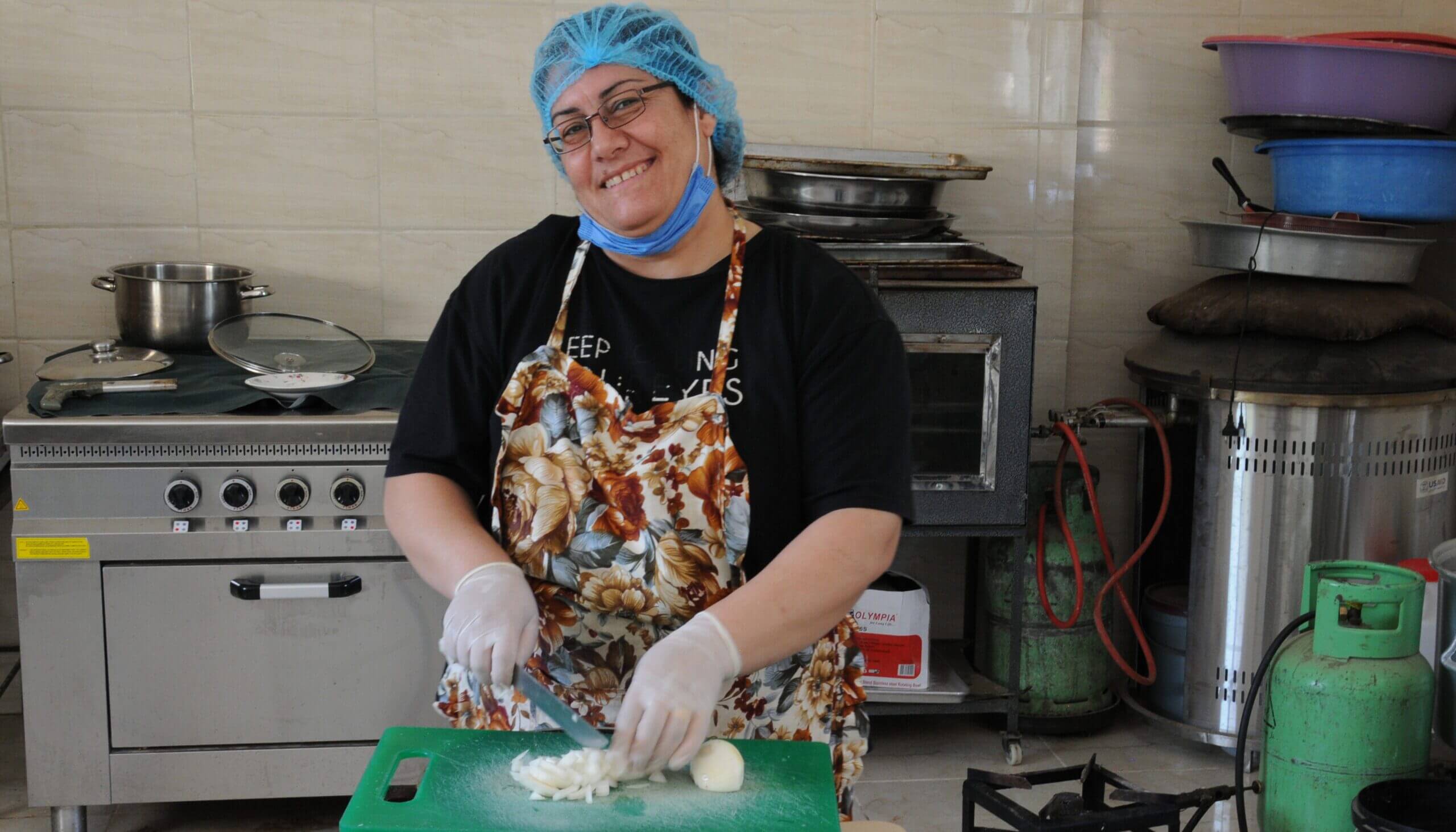
The Near East Foundation (NEF) has worked continuously in Jordan since 1937, focused on vocational training, micro-finance, and rural development. With more than 200 local community group connections, we understand that strong partnerships are key to progress. When we set out to launch a community revolving loan fund in Jordan in 2019, we knew that finding the right partners would be essential. Together with a trusted community-based organization, the Azraq Women Productive Cooperative Association, we are extending access to capital for small business owners previously locked out of such opportunities.
Tamam Jad Allah Amer lives with her husband in the small oasis town of Azraq, Jordan, her three kids now grown and married themselves. Ten years ago, Tamam decided to begin cooking for friends and neighbors to help pay her household expenses. Her food was such a hit that, with the help of her husband and son, she built a commercial kitchen and launched a home-based cooking business.
As Tamam grew her business, she participated in many trainings: entrepreneurship development with the Agricultural Engineers Association, cooking and sweets with Al-Irfan, product pricing training with IRADA, and food and beverage service, menu planning, and food hygiene with Ammon Applied University College.
Despite a richness of development opportunities, Tamam struggled with a lack of access to capital to invest in her business. She took a loan from a local firm in spring 2019, but the interest rate was high, and she hesitated to take on any more debt to make needed repairs, including painting her dining room, replacing broken windows, and buying new cooking equipment and furniture.
In summer 2019, Tamam heard about NEF’s community revolving loan fund, implemented in partnership with the Azraq Women Productive Cooperative Association. Tamam had attended trainings and workshops hosted by the cooperative association and she already knew and trusted the staff. Tamam decided to apply for an interest-free loan of 1,500 JD (~2,100 USD), which she invested in upgrading her dining room and cooking tools.
The upgraded dining room allows Tamam to host tourists through a contract with Azraq Hostel, which brings groups to Tamam’s to cook and eat traditional foods. She has also become an instructor for more than just tourists: due to her expertise, she was selected to conduct vocational training for three women who want to start their own food processing businesses through NEF’s complementary Empowering Civil Society project.
The business training NEF offers alongside loans has helped Tamam build her skills in marketing, financial planning, and calculating net profit.
As Tamam looks to the future, she is planning to hire three employees to help her meet growing demand. And she hopes to take a second loan from the NEF community revolving loan fund to further upgrade and scale her business, once the first is repaid.
NEF’s community revolving loan fund is supported by the Elsa and Peter Soderberg Foundation, with co-funding for the design phase by the Asfari Foundation. As Tamam repays her loan, alongside the fund’s initial cohort of more than 60 borrowers, additional capital will become available for future loans to promising entrepreneurs. The revolving loan fund is designed to be a sustainable, community-led alternative to help meet the demand for business financing among marginalized small entrepreneurs who are often deterred or excluded by traditional microfinance channels.
NEF’s unique approach strengthens trusted local organizations’ ability to provide this critical access to finance and is complemented by non-financial services that build entrepreneurs’ skills, confidence, and networks through training, coaching, mentoring, and advanced tailored support. This pilot is part of a broader program, with co-funding from the Open Society Foundations, to empower civil society to reduce vulnerability to social protection risks among highly vulnerable households in Jordan.